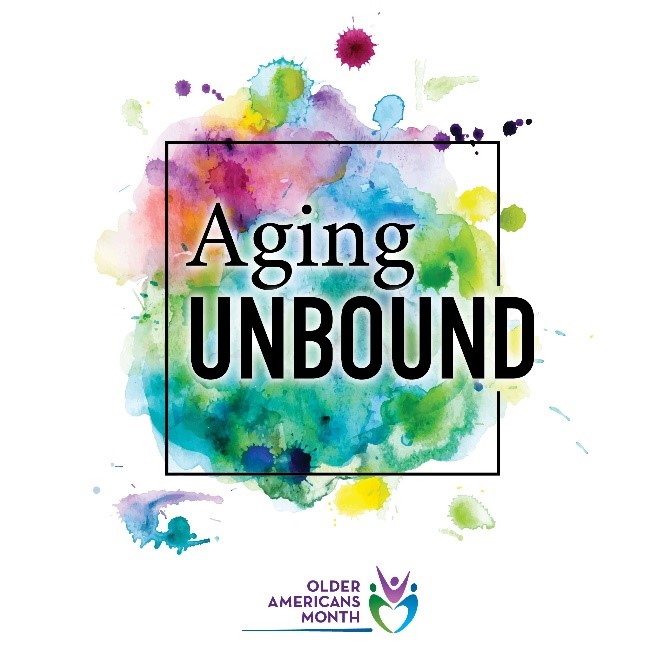Thriving in Old Age
In honor of Older Americans Month in May, I wanted to break down stereotypes about older adults. In the United States, we tend to split older adults into two groups: we celebrate the few older adults who live past 100 with TV stories or newspaper articles, and then we assume most older adults have unbearable burdens and are languishing in understaffed facilities.

These two narratives miss the larger story about the way most older adults live their lives. One way to look at aging is to recognize that older adults have experienced and learned how to survive and thrive, while adapting to global, national and personal triumphs and tragedies.
Resilience is a concept that has several different definitions, but at its core, it means thriving in the face of adversity. Resilience encompasses several different factors including personal competence and tenacity, trust in one's own instincts, tolerance of negative feelings, and viewing stress as something that strengthens rather than weakens oneself. Those who are resilient have a positive acceptance of change and tend to have secure relationships. They have a sense of control in their life and an awareness of a spiritual influence.
Research such as the SAGE study (Successful Aging Evaluation Study) shows us that older adults are higher in their self-ratings of successful aging than younger adults. This is despite having worse objective physical and cognitive functioning. The longest-running study of adult development, the Study of Adult Development at Harvard Medical School showed similar findings. Essentially, most of those older adults who do not have brain diseases such as depression, dementia or substance use disorders maintain a strong sense of well-being until the final months before death. In general, older adults are less depressed than the general population and have less incapacitating illness until the final one.
Those who successfully age recognize that it isn't the bad things that happen, it is the good people who enter their lives that matter. Healing relationships are helped by a capacity for gratitude and forgiveness. Research has shown that there is power when one loves another particular person. Positive relationships keep us happier, healthier and help us live longer.
It turns out that learning to play and create is more important than income in retirement. Having a successful marriage at age 50 years is more important than normal cholesterol in predicting successful aging. And studies have shown that it is never too late to start this process, and that we can always become more resilient! To be resilient one needs to develop behaviors, thoughts and actions that support bouncing back from the things that happen in life — this is what helps older adults thrive and not just survive.
References
- American Psychological Association. The Road to Resistance.
- Jeste DV, et al. Association Between Older Age and More Successful Aging: Critical Role of Resilience and Depression. Am J Psychiatry, 2013.
- Vaillant GE. Aging Well: Surprising Guideposts to a Happier Life from the Harvard Study of Adult Development. 2002.
- Waldinger R, Schulz M. The GoodLife: Lessons from the World’s Longest Scientific Study of Happiness. 2023.
